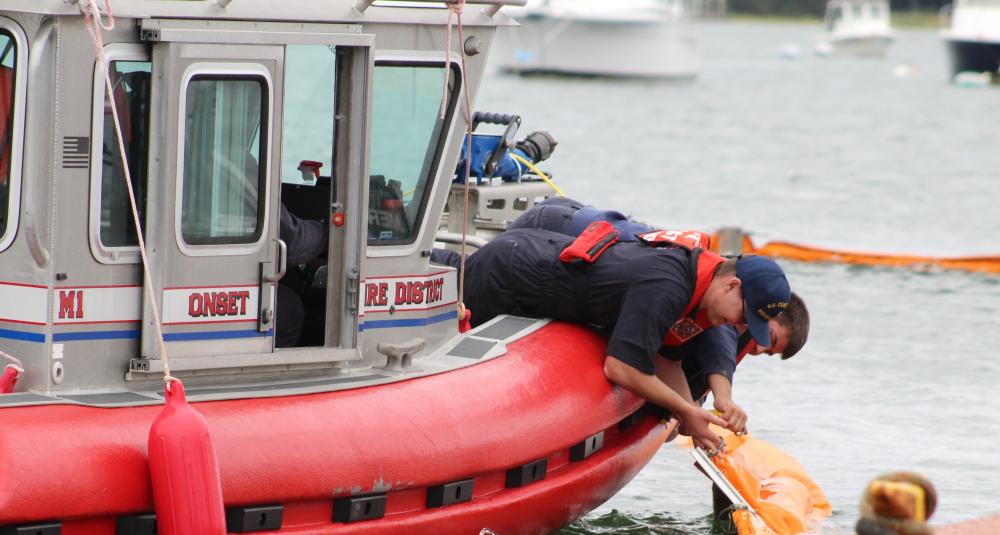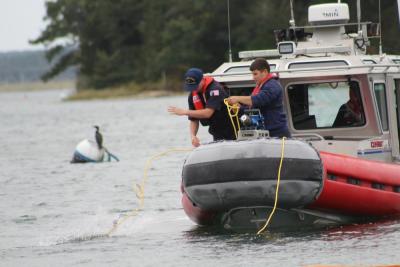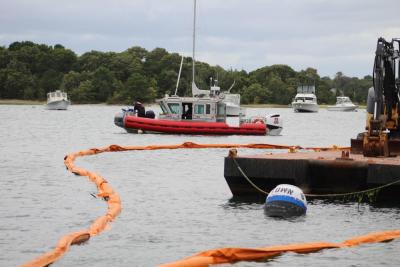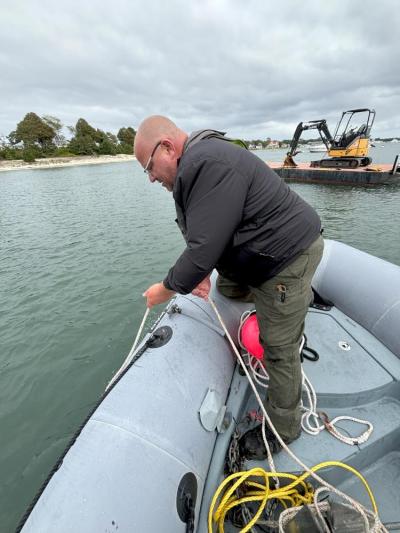Booming success: Government agencies collaborate on oil spill drill
Off the waters of Onset pier, local, state and national agencies joined forces to conduct an oil spill drill.
In the drill conducted Monday, Sept. 23, members of the Onset and Wareham Fire Departments, Department of Natural Resources and the United States Coast Guard practiced deploying 300 feet of deflection boom around a boat tugging a barge carrying a small excavator. No oil was used in the drill.
A deflection boom is a temporary floating barrier that prevents spilled oil from spreading out into a body of water. Because oil is less dense than water, when spilled, oil will float on the surface of the water and the perimeter created by the boom prevents the oil from spreading.
With Onset Fire and the Coast Guard on one boat and Natural Resources on the other, the two boats worked together to deploy sections of deflection boom to create a perimeter around the barge.
Overall, participating groups agreed that the drill had been a success.
"Today was great,” said Onset Fire Captain Patrick MacDonald. “It was a great opportunity for us to test out our capabilities and work with some other agencies to deploy boom.”
Garry Buckminster, Harbor Master and Director of Natural Resources for Wareham said he had been a part of the response to the Bouchard Barge oil spill 21 years ago and he saw how what was practiced in the drill could translate to a similar situation.
"Over the years of doing these training missions with the Department of Environmental Protection and the fire departments, you're starting to understand how deflection works and we're just getting a better idea of how to get boom out and get it set up to do its job," said Buckminster.
The drill was hosted by the Marine Oil Spill Prevention and Response Program under the Massachusetts Department of Environmental Protection.
Director of the program Julie Hutchindson said deploying the deflection boom is difficult due to the many lines, chains, anchors and buoys involved.
These drills began as a response to the Bouchard Barge oil spill, which released 98,000 gallons of oil into Buzzards Bay in 2003.
At the time, there were few resources readily available to remediate and restore spills of its magnitude, according to Marine Oil Spill Prevention and Response Program coordinator Julie Hutchinson.
"It was hard to be at the spill and see just how much we had to improve on," said Hutchinson.
As a part of the response to the spill, the Marine Oil Spill act was passed in 2004 and this allowed coastal towns in Massachusetts to have the supplies and training needed to handle another spill.
The act issued 81 trailers containing around 1,000 feet of deflection boom and training on how to use the boom be made available to coastal towns in Massachusetts.















